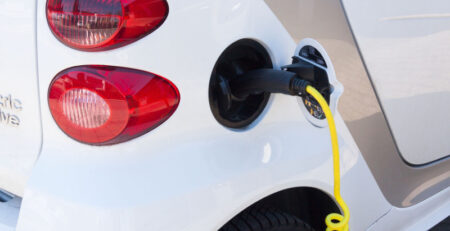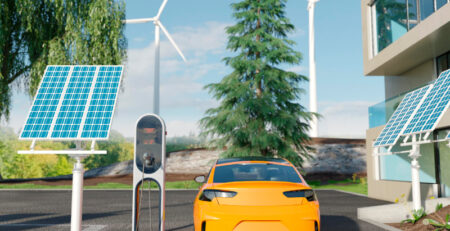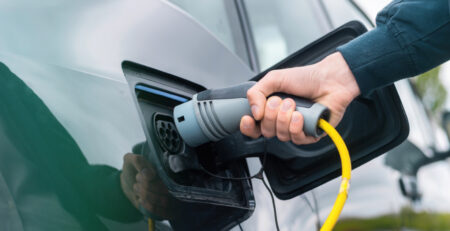Myths about EVs
- The transport sector does not have a significant contribution to the global carbon dioxide emissions.
- The transport sector is responsible for roughly 37% of the greenhouse gas (GHG) emissions. The carbon dioxide emissions directly correlate to the growing level of pollution and respiratory diseases all over the world.
- EVs are not safe.
- The latest generation of EVs have been thoroughly tested for all safety measures. EV manufacturers have been addressing the challenges of short circuits and explosions through rigorous testing. Manufacturers have been working on intelligent Battery Management Systems (BMS) to perform the tasks of heating, cooling, insulation, ventilation of batteries, and so on.
- EVs take very long to charge.
- The time taken by an EV to charge depends chiefly on the charger itself. The EVs available in the market today can go from 0% to 80% charged in the matter of 1 to 5 hours, depending on the type of charger available, i.e., slow, moderate, or fast.
- EVs are very expensive.
- EVs do have more capital expense, so you may have to pay a little more compared to an ICE to purchase an EV. However, EVs turn out to be more cost-effective in the longer run, mainly because they run on electricity. Electricity is significantly cheaper than any fossil fuel. Additionally, the maintenance charges of an EV are very little compared to an ICE because EVs have fewer moving parts, leading to less wear-and-tear overall. Also, the tax rebates and other incentives provided by the Government make it easier to purchase and maintain an EV.
- EVs are slow.
- The EVs today have high-speed powertrains and therefore, move along the same speed as any ICE, if not faster. EVs have a high torque in comparison with their ICE counterparts and in fact, accelerate faster. If you still believe that EVs are slow, feel free to check out E1 races, the electric version of F1 races.
- EVs have a low range.
- The introduction of high-density batteries in EVs has led to an increase in the battery capacity, in turn, improving the range of EVs. An average electric 2-wheeler in the market can travel up to 84 kms with every charge, while an electric car can go up to 200 kms. Upcoming models are equipped with higher battery capacity.
- Batteries of EVs have to be replaced frequently.
- EV batteries for vehicles of all segments have warranty of 3 to 8 years. The replacement of batteries depends more on the vehicle usage and less on the warranty of the battery.
- There is a dearth of charging stations.
- Governments are encouraging the setting up of EV charging stations and there are several companies working towards the same, and AmpVolts is one of them. In the coming years, there will be sufficient infrastructure for charging EVs and you will be able to charge your car as easily as you can refill your fuel tank with petrol.








Leave a Reply